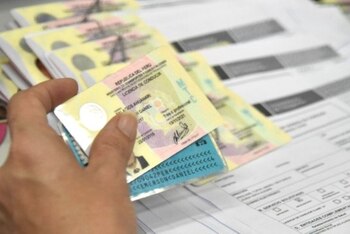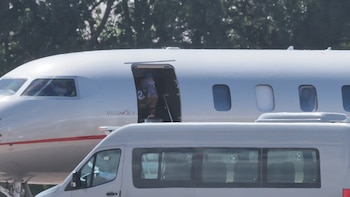
On Tuesday night, the Executive amended the National Regulations for the System for the Issuance of Driver's Licenses or brief, which had been approved by Supreme Decree No. 007-2016-MTC, in the case of the revalidation of these documents.
The changes were published in the extraordinary edition of the Bulletin of Legal Standards of the Official Gazette El Peruano, in Supreme Decree No. 004-2022- MTC
The regulation modifies paragraph a) of paragraph 19-A.2 of article 19-A of the National Regulations on the System for the Issuance of Driver's Licenses, as follows:
Article 19-A.- Revalidation
For the revalidation of Driver's Licenses in the same or lower category in Classes A and B, the following requirements must be attested:
a) Submit an application as an affidavit, in which the personal data of the applicant is recorded, duly completed and signed, indicating the following:
a.1 For class A category I and class B driver's licenses, only:
i. Not to be deprived by a final judicial decision as a res judicata of the right to drive land transport vehicles.
II. Have a health certificate for Driver's Licenses, issued, approved and registered with the National Driver System.
iii. Have an approved knowledge exam, carried out in an Assessment Center, previously registered in the National Driver System. This requirement will not be required for the revalidation of Class A Category I driver's licenses.
a.2 For class A driver's licenses categories II and III, only:
i. Not to be deprived by a final judicial decision as a res judicata of the right to drive land transport vehicles.
ii. Have a health certificate for Driver's Licenses, issued, approved and registered with the National Driver System.
iii. Have the course on updating transport and traffic regulations for drivers of the ground transport service, given by the Driving Schools, within the framework of the provisions of the National Regulations on Transport Administration, approved by Supreme Decree No. 017-2009-MTC; issued and registered in the National Driver System. This requirement applies provided that during the immediate preceding period from the date of obtaining or last revalidation of the driver's license until the date of submission of the application for revalidation, the driver does not have penalties for violations of the National Traffic Regulations approved by Supreme Decree No. 033-2001 -MTC, that are firm or that have exhausted administrative channels. Otherwise, or in the event that the driver does not provide the transport service, the provisions of paragraph a.1 (iii) of this article apply.
30 DAYS FOR ADEQUACY
In addition, a supplementary provision states that, within a maximum period of 30 working days, counted from the publication of this Supreme Decree (5 April), the National Driver System is adapted for the issuance and registration of the Course on Updating Transport and Traffic Regulations for drivers of the ground transportation service.
The Supreme Decree comes into force on June 1, 2022. The rule bears the signature of the President of the Republic, Pedro Castillo; the Minister of Transport and Communications, Nicolás Bustamante.
KEEP READING:
Últimas Noticias
Debanhi Escobar: they secured the motel where she was found lifeless in a cistern
Members of the Specialized Prosecutor's Office in Nuevo León secured the Nueva Castilla Motel as part of the investigations into the case

The oldest person in the world died at the age of 119
Kane Tanaka lived in Japan. She was born six months earlier than George Orwell, the same year that the Wright brothers first flew, and Marie Curie became the first woman to win a Nobel Prize

Macabre find in CDMX: they left a body bagged and tied in a taxi
The body was left in the back seats of the car. It was covered with black bags and tied with industrial tape
The eagles of America will face Manchester City in a duel of legends. Here are the details
The top Mexican football champion will play a match with Pep Guardiola's squad in the Lone Star Cup

Why is it good to bring dogs out to know the world when they are puppies
A so-called protection against the spread of diseases threatens the integral development of dogs



